'Take the Victoria Line to Colombia': Inside London's colourful Latin market, threatened with demolition
Traders in the Pueblito Paisa market – overwhelmingly made up of South American migrants – are fighting a Compulsory Purchase Order which would see their precious community hub demolished
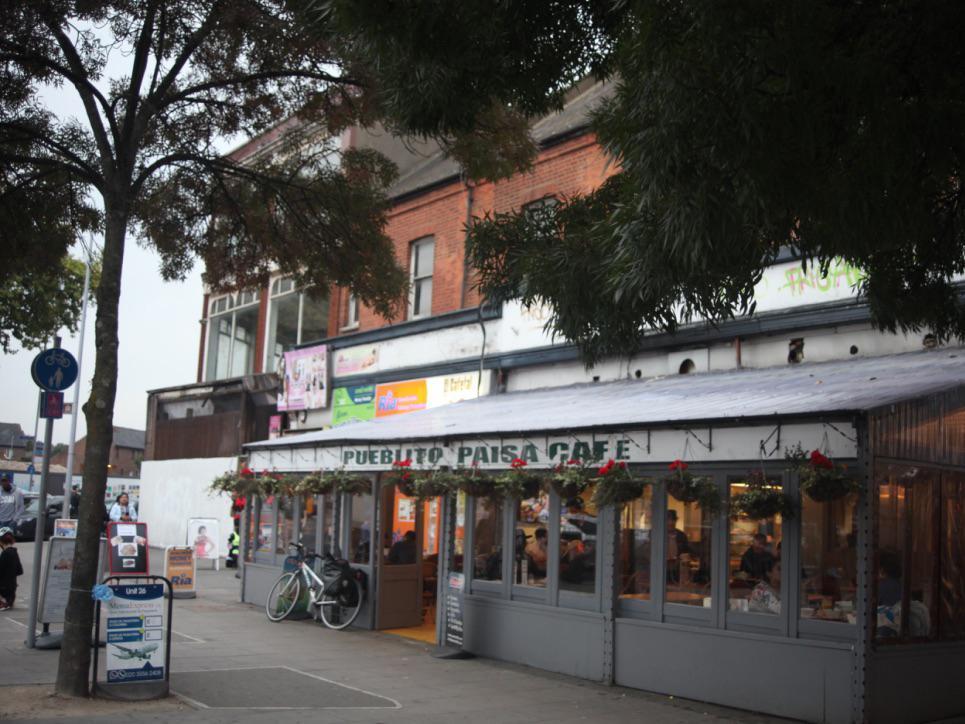
Inside the old market, the sounds of Latin America ring out. Salsa beats are heard at every turn, permeating around the rickety plywood shops, salons and eateries. Customers feast on tamales, beans and empanadas, others chatter in Spanish as they get their hair done. Their children run around freely through the corridors.
Yet the currency being exchanged is not pesos, but pounds, and despite its atmosphere, the market is not in Colombia, but in north London: Tottenham, to be exact.
“Take the Victoria Line to Latin America,” laughs Daniel Martinez, “that’s what they say. This is a different world. Once you stop through those doors, you’re in a different place. Everyone can feel it.”
Tucked inside the old Wards Corner department store, next to Seven Sisters underground station, Pueblito Paisa – also known as Latin Village – is unknown to most of London’s residents. But for many in the capital’s Latino community, the market is not just somewhere to go shopping, but a place of community and identity, in a city which can be hard on both.
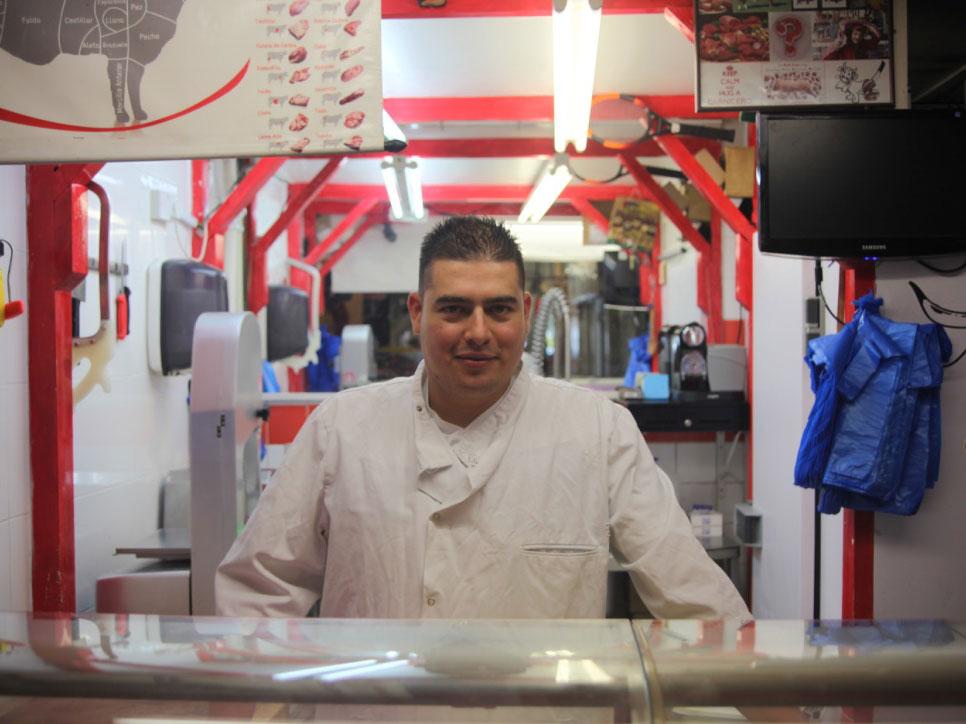
Martinez, 30, was born in Anserma, in Colombia’s Caldas region, like a surprising number of other inhabitants of the market. His family moved to the UK when he was eight years old. He has worked alongside his father, Nelson, in their family-run butcher’s since 2006, and gets up at 2.30am each morning to buy meat.
Like many of the market’s residents, he is bursting with pride at what his community has created here.
“You get a feeling here you don’t get anywhere else,” Martinez says. “Everyone is friendly and everyone helps each other.”
London officially prides itself on its diversity, and Latinos are the capital’s second-fastest growing non-EU migrant population. Many of the traders and customers of the Latin Village came to the UK to escape violence and persecution in their home countries. But they are now facing a different type of fight: gentrification.
Haringey – one of the most deprived boroughs in the country – is to be redeveloped in a big way. Local politicians have been crying out for investment for years, though some residents are concerned about how it is being done. One of the key targets for development, to be carried out by Grainger PLC, is the Latin Village.
Marta Lucia Giraldo arrived in the UK in 1999 from Colombia. She says her work there suffered because of disruption caused by drug cartels, and she saw “no future” in the country. Giraldo was always an anglophile, she says, and preferred the UK’s cooler climate to the humidity of home. Like two-thirds of all new arrivals from Latin America, she worked first as a cleaner in London’s offices and homes of the wealthy.
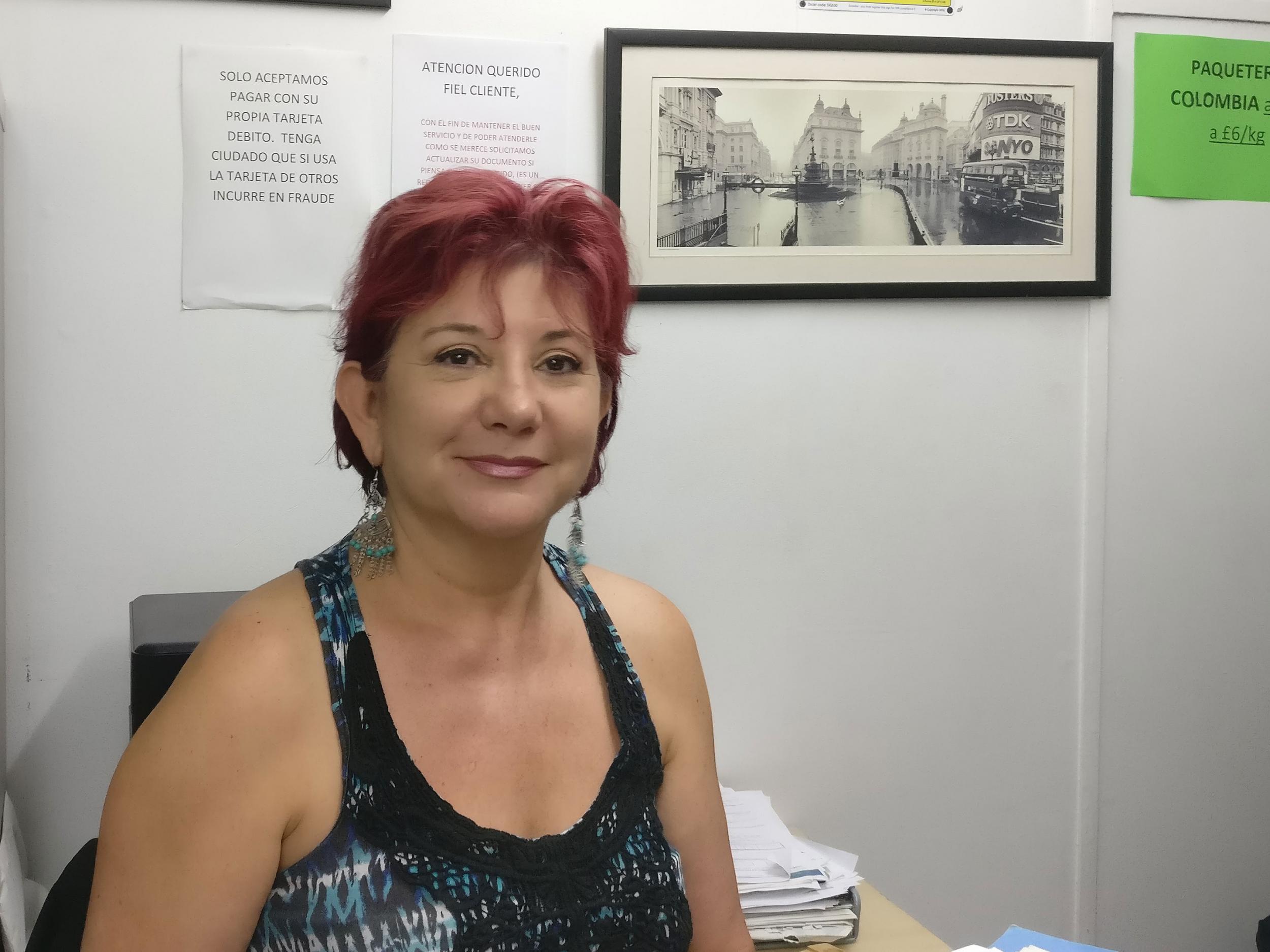
Unlike many others, she and her husband ran a side hustle of selling call cards and money transfers to her friends. Later, they realised there was a gap in the market for a money transfer business in north London. Giros Don Pedro was the first Latin American business to open in the market in 2001.
Back then, it was a very different place to today, infested with drugs and prostitution, Giraldo says. Women walked in pairs to the toilets for protection. Most of the units were empty, but she hung a tricolour flag outside so other Colombians would recognise it.
“Bit by bit, other Latinos moved in,” Giraldo says. “We wanted it to be the same style of Pueblito Paisa in Medellin... We wanted to feel like at least a tiny bit in Colombia, to feel closer to our families. We are powerless in this country, and this makes us feel a little bit at home.”
Newly arrived immigrants use the market as a hub to take their first tentative steps into Britain, traders say, using it as a place to find a room and a job, and then friends. Their work – usually cleaning – tends not to offer much in the way of conversation, and coming to the market is a vital place to socialise and relax.
“We’ve seen our children growing up here, and all we have, our money and resources, has been invested in this market,” says Blanca Fernandez, who left Colombia in 1994 and was granted refugee status in the UK.
Like her fellow trader, Giraldo, she worked as a cleaner and saved her money, opening a business in the market in 2003. She is now the proud owner of the restaurant Esquina de Blanca (Blanca’s Corner).
“The market means everything to me,” she says. “For me, being inside is like being in Colombia. When you enter this place, you feel the warmth. You can come with your kids, and just relax.”
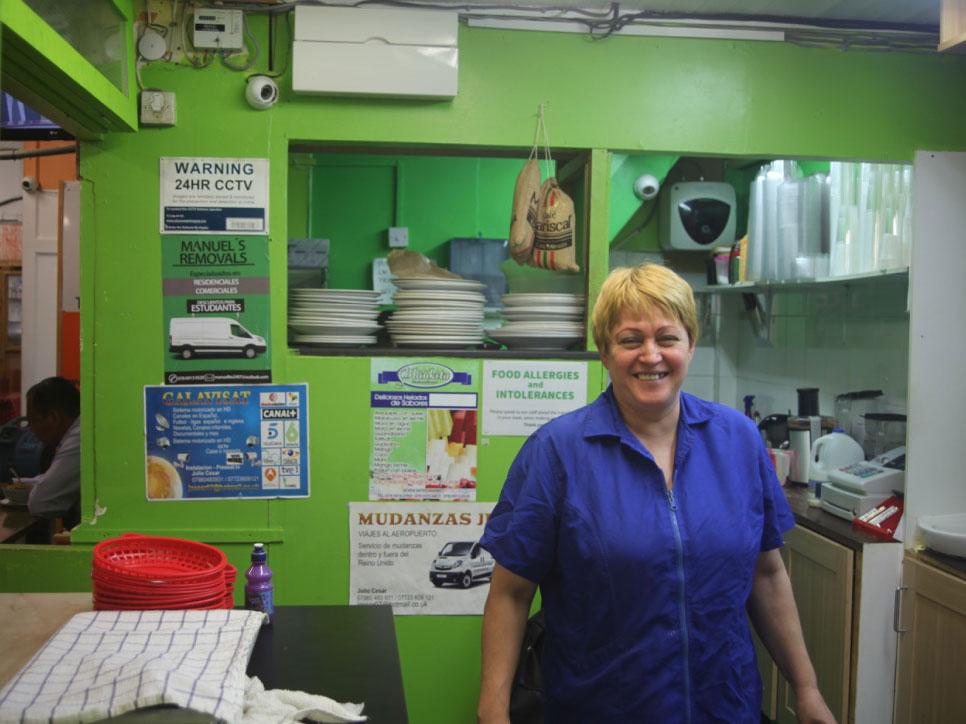
Plans for the redevelopment of the area have been going on for a decade, but escalated last year when a Compulsory Purchase Order (CPO) was made against the market – which lies adjacent to the abandoned Wards Corner building. In its place would be a rejuvenated glass-fronted 40,000 square feet of retail space, supposedly creating 210 jobs, but space for just six independent businesses. There would also be new 196 homes, but none would be affordable. Including the nearby Apex House development, 359 new properties will be built at Seven Sisters but just 59 will be affordable and even then still far too expensive for most local residents.
Campaigning together, the traders were able to force a public enquiry into the CPO, which is currently being reviewed the Department for Communities and Local Government. A decision is expected around the end of the year.
During the inquiry, 30 traders were represented by Monica Feria-Tinta, one of the UK’s most prominent lawyers of Latin American heritage (she is originally from Peru). She argued on their behalf that the Latinos in the market are suffering from “indirect discrimination”.
The traders have been offered the use of a temporary location in Apex House, before moving to a site in the new development. But Feria-Tinta argued they would be unlikely to survive the “much higher, more volatile” rents at the new properties, along with less space and the costs of moving twice.
“If a scheme had been deliberately designed to push the traders out of business, Grainger and the Council could scarcely have done a better job,” argued the traders’ closing submission to the inquiry.
Mistrust of both organisations is high, and the traders say losing the original site would be a “disaster” and “a huge loss”.
“There are 61 units here, each with their own workers. Each of those workers represent a family. All those families depend on this market,” Fernandez says.
Leading the community fightback is Marta Hinestrova, a salon owner. Her role as an organiser is well practised. In Colombia, she was a lawyer, working a job no one else would – representing campesinos (farmers) being victimised by right wing paramilitaries.
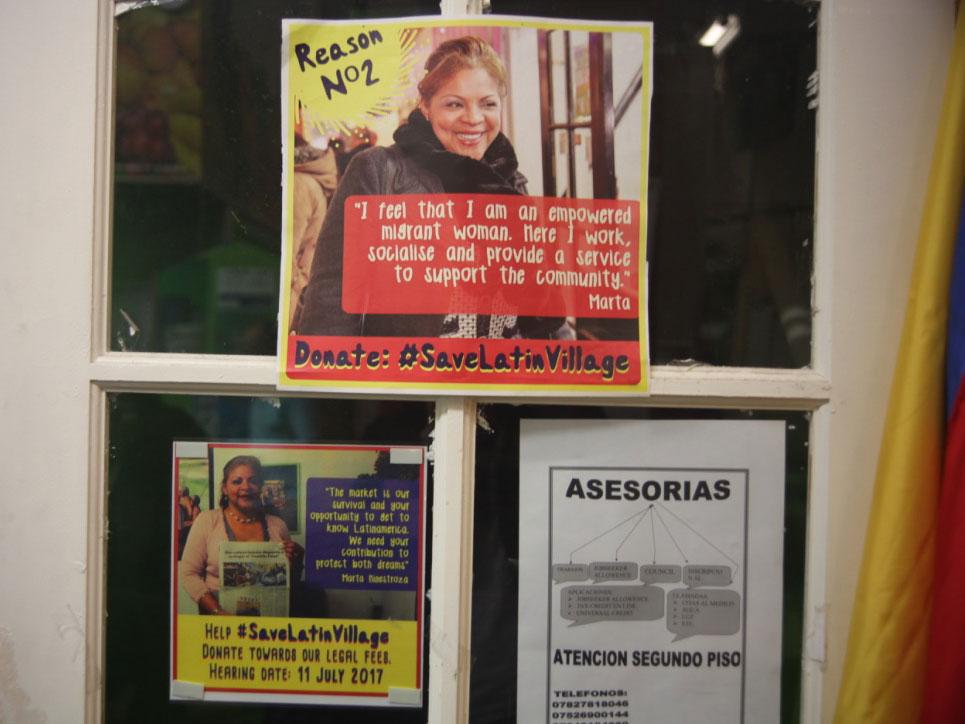
After years of dangerous work, she was informed that a family friend in the military could no longer protect her from all the death threats she was getting, and fled the country. Hinestrova became a refugee in Britain in 2002.
“The work I am doing here is different to what I was doing in Colombia, but there are similarities,” she says. “Only here, you can denounce the powerful and they won’t kill you!”
Hinestrova realised she could never work in the UK as a lawyer like she had at home, but, as a strong-willed woman, wanted to maintain her independence.
“If I hadn’t seen already how difficult it was in some communities, I wouldn’t have been able to survive here,” she says.
Many of businesses in the Latin Village are run by women. For Hinestrova, the market is not only a place for female migrants to be empowered; it is also a space to share the pains of the past.
“Many people here are dealing with trauma from their experiences in Colombia,” she says. “The market is a place to discuss it. A lot of people who come here are cleaners, and they can’t speak to each other about their pains (during the working day).”

The council and developers argue the area is in need of regeneration and jobs. But Marta, and many other locals, believe the area has been deliberately neglected by the authorities.
“When it started years ago there was drugs, prostitution,” she says. “The government never put anything into the community and didn’t work for a better life for it. We need support, not the displacement of our community.”
It is true the area needs investment and attention. Outside the market, teenagers often loiter and sell drugs, hiding their stashes in the street’s nooks and crannies. Alcoholics and junkies stumble around, begging for change. Hustlers line up tobacco and cigarettes on cardboard boxes, sitting a little way off to disassociate themselves from their products, lest the police stroll by. They usually don’t. But the clamour outside doesn’t enter the market.
Lita Kawajigashi is the owner of Pueblito Paisa cafe, the largest and most prominent business in Latin Village. It faces the street and greets anyone who walks out of the tube, and at the weekend its revellers drink aguardiente and enjoy the nostalgic sounds of Vallenatos, Boleros, and Huaraz Tropical.
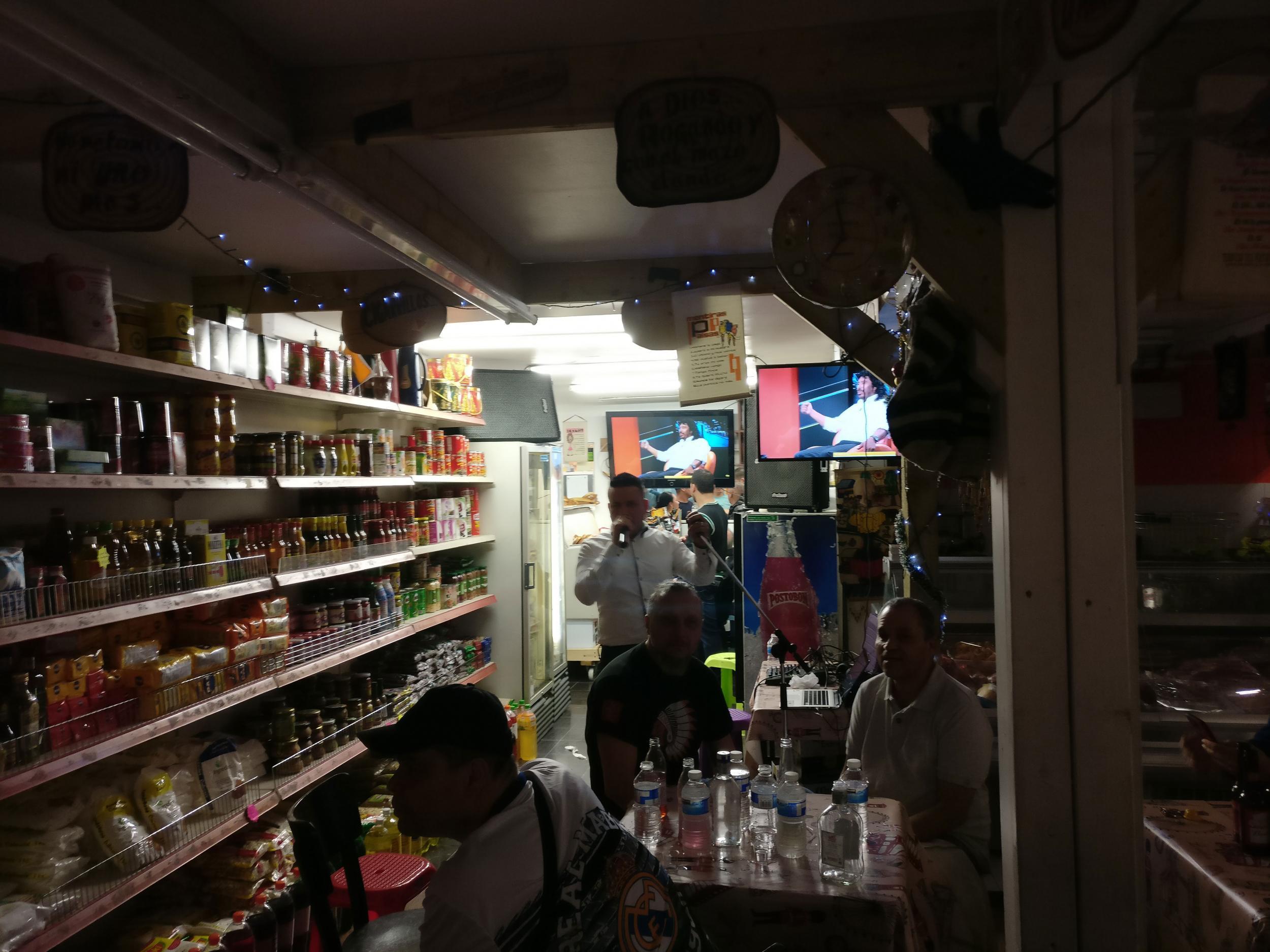
“They neglect this area, the council, the police,” Lita says over a coffee. “I feel all this is a plot to make this place undesirable. Everything is convenient for the regeneration.”
Marta agrees. “We need change, I know,” she says. “We need a better place for our community, for our customers, for us ... but (the planned development) is not the right way.”
“We’ll have to start again from zero,” says Giraldo, the money sender. “We will have to transport people and things to another site, do a lot of advertising and investments. It will be a waste of energy. The community is very anxious it will all end. Transition will not be easy.”
The restaurant-owner, Fernandez, has similar fears. “I doubt If things will go well economically at Apex House,” she says. “The market is already suffering from the measures the company has taken against us. Costs (rent, utilities) have gone up. We feel Grainger is already pressuring us.”
“We fear the community will disappear and disperse because what we are up against is too big,” she adds.
Martinez, the butcher, is more optimistic about his well-established company’s future economic prospects. But he still believes that “it’s like they are trying to divide us”, and that other, smaller businesses wouldn’t survive.
The traders favour the restoration of the Wards Corner building, which could allow them to stay, and their own plans to this effect were granted planning permission, along with Grainger’s.
There have long been concerns over the recognition and status of the quarter-million Latino migrants in the UK, around 145,000 of which live in the capital. The paperwork of many local authorities, including Haringey, do not list Hispanic as a recognised ethnicity.
While half of Latino migrants have a university education, a quarter of them work in low paid, menial jobs and many have had problems at work – with fifth reporting not being paid their wages. 20 per cent have difficulty speaking English (many of the interviews for this article were conducted through a translator). This is believed to be a key factor in holding the community back.
It is also believed to have factored into the development plans. In 2010, the High Court ruled Haringey Council had acted unlawfully by not properly considering their impact on the local community. Revised plans were duly submitted.
Feria-Tinta, the lawyer, refers to the community as an “invisible cluster” and thinks the council have not been taking their communities under equalities and human rights legislation seriously. “The community is hurting in a very big way,” she says.
For Professor Cathy McIlwaine, author of a major piece of research on Latino migrants in the UK, the market is “emblematic of the fact the Latin American community does exist in London and is important economically, culturally and socially”.
Its closure would be “terrible” and “undermine the notion of multiculturalism,” she adds.
The campaign to save Latin Village – recognised even by the United Nations – is just one story among the many changes sweeping the capital. Tottenham, one of the last areas of London not taken over by gourmet coffee shops, will be developed, and current national mood does not prioritise the concerns of migrants. But locals say they wonder about the cost, if the “retail units” which spring up are identical to almost any other high street in the UK.
Back in Pueblito Paisa café, Kawajigashi finishes her coffee. “If I were to die tomorrow, it would be my wish for all these bodies to give us this place from their own good will,” she says. “It would be a legacy from them to us. To give the space to the community would be very beautiful.”
A Grainger spokesperson said: “Seven Sisters Indoor Market is at the heart of our proposals and we are committed to encapsulating and sustaining the culture and vibrancy of the current market in the new development. Following regular discussions with market traders through the Future of Seven Sisters Market Steering Group and on an individual basis, we have taken additional steps earlier this year to provide market traders with greater certainty and enhanced financial support during the construction phase, as part of the Section 106 contribution.
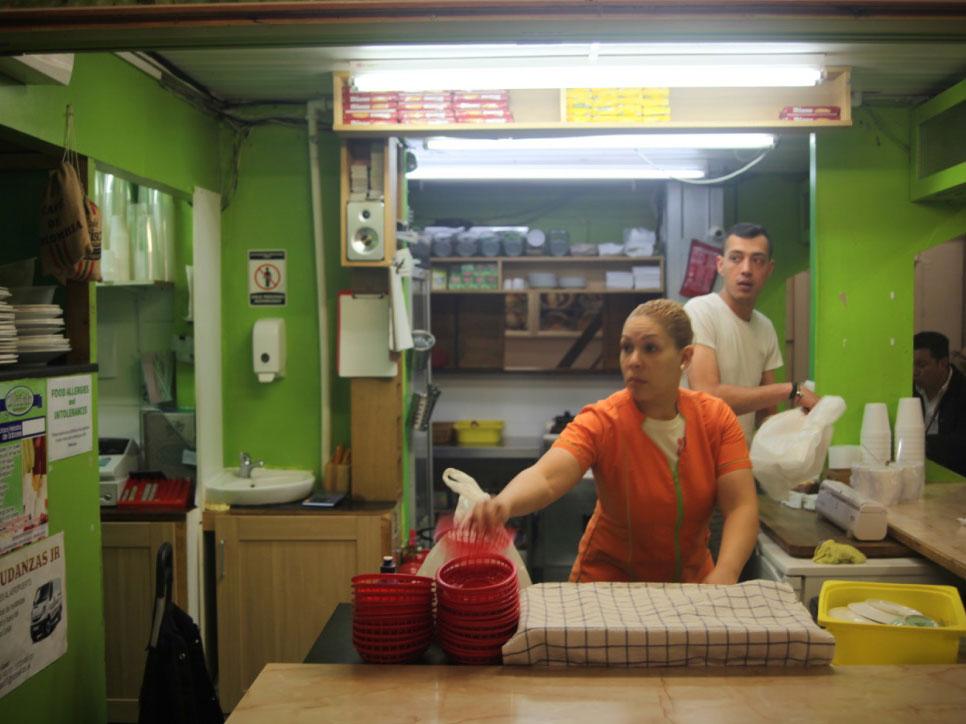
“We are now proposing set rents for a period of five years including three months ‘rent free’ period in the temporary market and 18 months discounted rent in the new market. In addition, we will be providing financial assistance to relocate each business to the temporary and new market. Grainger has been working with market traders, the local community and Haringey Council for many years to bring forward Seven Sisters Regeneration project and remains fully committed to delivering it.
“This project will transform the site and deliver much needed investment into the area including providing a purpose built facility for Seven Sisters Indoor Market to operate from and continue to thrive, help create 210 new full time jobs, generate £2 million of new spending each year within nearby shops and services, provide safe and active public spaces which will form a new focal point for the local community and deliver 196 new homes for long term rent by Grainger. No homes will be sold. A mechanism exists for Grainger to provide a financial contribution to the Council to use towards the provision of off-site affordable housing.”
Cllr Alan Strickland, Haringey council cabinet member for housing, regeneration and planning, said: “We want a thriving market to be at the heart of our plans to revitalise the Seven Sisters area. The planning permission clearly states that the existing market must be successfully relocated before any work can start on the market site. We’ve been taking extensive steps to work with existing traders including a generous package of support offering free relocation to both the temporary and new markets, subsidised rents, business support and advice to help promote the market throughout this process and to maximise the number of current traders who will relocate into the new market.
“We’re confident that this scheme will revitalise the area, creating hundreds of new jobs and homes and quality retail space, as well as bringing increased footfall to help the improved Seven Sisters market flourish. Our proposals have been subject to Equality Impact Assessments to ensure that we have taken equal opportunities into consideration at each stage.
“In July the Planning Inspectorate conducted a three-week independent inquiry into the scheme on behalf of the Government, and we are currently awaiting its decision.”
A spokesman added that the council “absolutely refuted” the accusation that the area had been deliberately neglected by local authorities to make way for the redevelopment.
Join our commenting forum
Join thought-provoking conversations, follow other Independent readers and see their replies
Comments
Bookmark popover
Removed from bookmarks